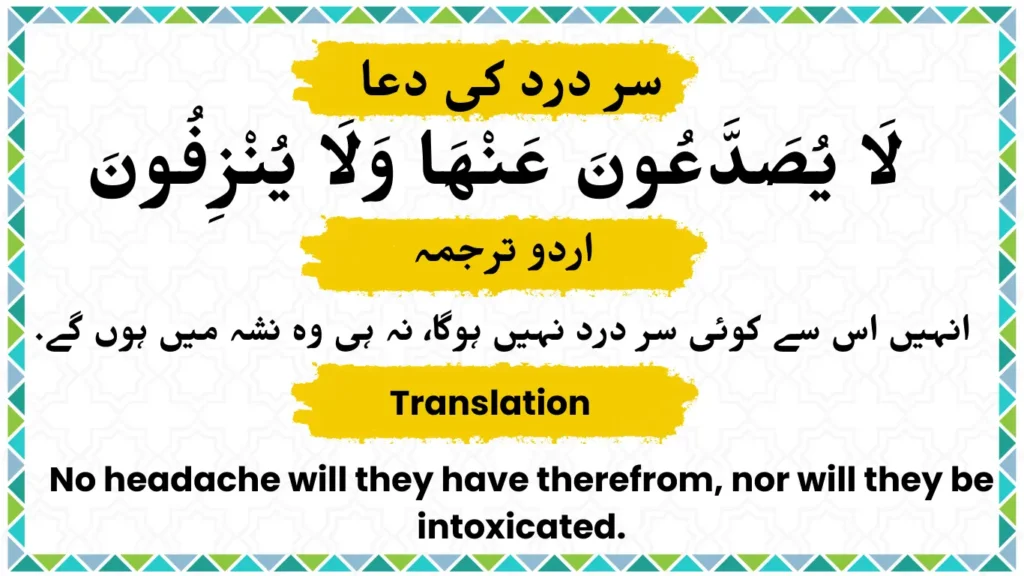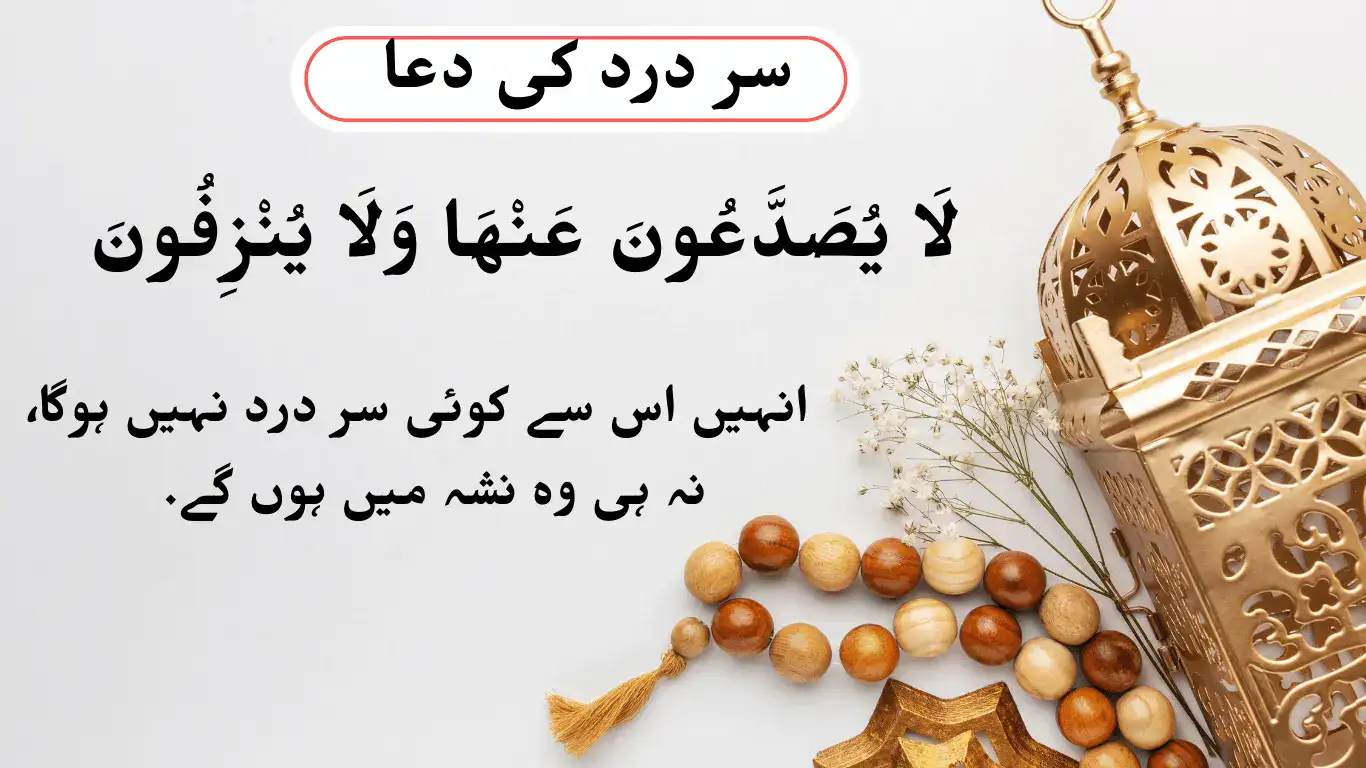Experiencing a headache, or sar dard, can be both painful and frustrating. Whether it’s caused by stress, tension, fatigue, or illness, headaches can disrupt our daily routines. While there are many modern medicines to alleviate headaches, Islamic teachings also provide spiritual remedies for healing, including specific duas (supplications) from the Quran and Hadith that are believed to bring relief from pain and discomfort. One such dua is known as sar dard ki dua.
Understanding Sar Dard Ki Dua
The dua for headache comes from Surah Al-Waqiah (56:19), a verse from the Holy Quran. This verse is believed to help in curing headaches and migraines when recited with faith and sincerity. The verse is as follows:
Arabic Text:
لَا يُصَدَّعُونَ عَنْهَا وَلَا يُنْزِفُونَ
(La yusadda’oona ‘anha wa la yunzifoon)
Translation:
“They will not get any headache from it, nor will they be intoxicated.”
This verse, when recited three times, can help alleviate the pain and discomfort associated with headaches.

How to Recite headache Ki Dua
To benefit from the sar dard ki dua, follow these steps:
- Recite the verse from Surah Al-Waqiah (56:19) three times with full concentration.
- Blow gently on your forehead after each recitation.
- Have faith in Allah’s healing power and make a sincere intention for relief.
Many individuals have found spiritual comfort and relief from headaches through this powerful Quranic dua. However, it is important to note that this is a spiritual remedy and can be practiced alongside conventional treatments.
| Dua for tooth Pain | Dua for Toothache Relief |
| So kar Uthne Ki Dua | Wake Up Prayer |
| Morning Prayer – Subah Uthne Ki Dua |
| Dua for Sleep – Sote waqt ki dua |
Benefits of Reciting headache Ki Dua
Reciting sar dard ki dua not only helps with the physical pain but also provides spiritual peace. Here are some key benefits:
- Quick Relief: Regular recitation of this verse is believed to provide swift relief from headaches and migraines.
- Mental Calmness: This dua not only alleviates physical pain but also brings mental peace and calmness, which helps in reducing tension.
- Faith-Driven Healing: Reciting duas brings one closer to Allah and increases faith in His mercy and healing power.
- Natural and Spiritual: Unlike medications that may have side effects, the dua offers a natural and spiritual way of seeking relief.
Headache Causes and Islamic Perspective on Healing
Headaches can arise due to several reasons such as stress, dehydration, lack of sleep, or even sinus issues. Islam encourages believers to seek medical treatment for ailments while also trusting in Allah’s wisdom and guidance. The Prophet Muhammad (PBUH) often emphasized the importance of dua for healing, demonstrating that spiritual remedies can be just as important as physical treatments.
Additional Remedies Along with headache Ki Dua
While the dua is powerful, combining it with other remedies can enhance relief:
- Stay Hydrated: Dehydration can cause headaches. Drink plenty of water.
- Rest: Fatigue is another major cause of headaches. Make sure to get enough sleep and rest.
- Massage: Lightly massaging the temples with olive oil while reciting the dua can provide further relief.
- Avoid Stress: Try relaxation techniques such as deep breathing or dhikr (remembrance of Allah) to calm your mind.
Conclusion
The sar dard ki dua offers a spiritual solution for those who suffer from headaches. Combining this dua with trust in Allah, medical treatment, and self-care practices can provide comprehensive relief. Whether it’s a mild headache or a severe migraine, reciting the Quranic verse from Surah Al-Waqiah (56:19) can be a source of comfort and healing for Muslims around the world.
FAQs:
The best dua for headache relief is from Surah Al-Waqiah (56:19): “La yusadda’oona ‘anha wa la yunzifoon.” Recite it three times and blow on your forehead for relief.
It is recommended to recite the dua three times and then blow gently on the area of pain, especially the forehead.
Yes, the dua can be recited alongside taking medication. Islam encourages seeking both spiritual and physical remedies for ailments.




